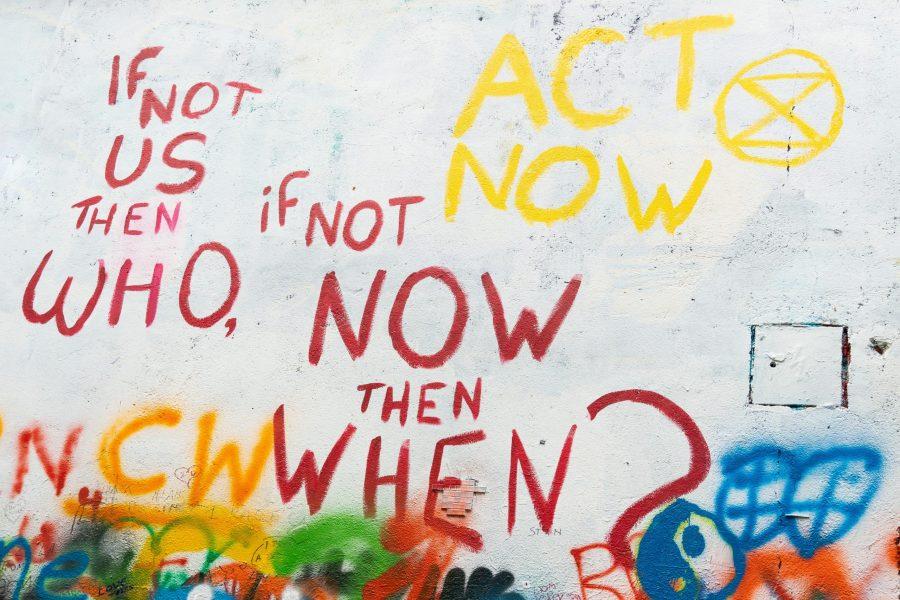Our world is crumbling. It is time to be proactive. Prevention is always better than cure.
This past year, some things went right, but arguably a lot more went wrong. From COVID-19 to poverty and natural disasters, humanity failed to forestall many calamities in 2021. As part of a generation largely disillusioned with ineffective politics, I feel that this year was a continuation of the effects of one way of thinking that needs drastic alteration to counter our world’s problems. Namely, we think of the cure before the prevention.
This reliance on a panacea often leads to dramatically positive discoveries like alternative energy and the COVID vaccines, but also leads to a lot of inaction on solving problems like a pandemic at their roots. Despite massive floods, wildfires and temperatures that are far from the norm due to climate change, businesses and world leaders continue to invest in industries like oil and gas instead of overhauling the energy sector with guidance from Indigenous communities. Instead, they only invest when they have to mitigate disasters like Hurricane Harvey, wildfires that have been abetted by the climate crisis, and out-of-control weather patterns across the country. Kentucky’s senators hail from one of the poorest states in the union. Yet they neglected to support popular and transformative federal aid for their constituents and other impoverished Americans until tornadoes devastated the entire state in December 2021. World leaders largely remained ignorant even as they entertained the prospect of new COVID variants. They took credit for vaccines, and they took the bare minimum of precautions to protect their people against a pandemic that has killed over 5 million worldwide. There has been a little push from the government in conjunction with the public and the media to focus efforts on analyzing spike protein permutations via genetic mutation tracking along with vaccine development. We know what blindsides us in each of these issues, yet we refuse to invest that little additional amount to eradicate these imminent threats from the world before, not after they wreak havoc.
Additionally, this is important beyond forestalling problems directly related to these largely predictable disasters. Many people can end up being blamed or scapegoated for the plight of those on the upper end of a power dynamic between two groups of people. This can range from dynamics between majority and minority races within a country, to two national governments. There are many cases in American history where we’ve seen such misdirected anger, including in the aftermath of 9/11 which led to injustices such as the imprisonment of many innocent Muslims in Guantanamo Bay.
But one of the most consequential and infamous of these dynamics was largely at play in the years leading up to and during World War II. Following World War I, Germany being on the losing side was forced to pay significant financial reparations despite previous assurances that such demands would not be asked of Germany. These reparations were a cure to the present problem, which the winners of World War I thought was Germany’s access to a military. But the Treaty of Versailles and subsequent establishment of the League of Nations were meant to ensure not only a temporary peace, but also to stop another world war from ever taking place. But this ambush of Germany went to economic and political lengths that explains their later involvement in World War II. The amalgamation of such cycles of the powerful oppressive class attempting to find immediate cures for their problems have kept repeating through different scenarios throughout history, leading to crimes as horrendous as those committed during the Holocaust genocide.
In a contemporary fashion, similar cycles have emerged such as racist attitudes towards people of East Asian descent during COVID and fascist views of the legitimacy of one of the world’s most secure elections. A cure to all of one’s problems no matter who it harms in the process seems to be the best option when the powerful have that choice in their hands. But it is time to abandon this quick-solving mentality in favor of one that encourages radical preventative measures. We must abandon the status quo and our traditional notion of practicality that favors premature cures over mature prevention.
Photo by Rod Long on Unsplash.

















Jake Ryan Raigoza • Jan 3, 2022 at 8:43 am
this “article” is as deep as the times were in. saying that being reasied in the 90’s and having children myselfthf,. i state that this article has such inner deeplyu rooted empotuional impellment(als). i greatly look forward to more i digress…..